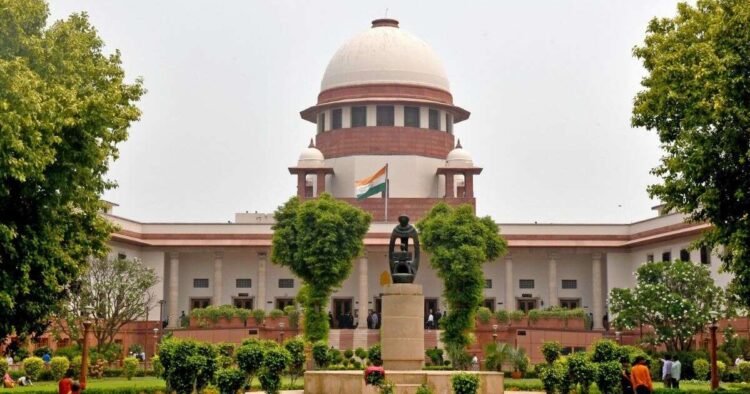In a significant development, the Supreme Court has intervened to pause the implementation of an Allahabad High Court order that declared the Uttar Pradesh Board of Madarsa Education Act, 2004, as unconstitutional. This decision comes as a relief to around 17 lakh madrassa students in Uttar Pradesh, allowing approximately 16,000 madrassas in the state to continue operating under the 2004 law.
A bench led by Chief Justice of India DY Chandrachud expressed concerns about the high court’s ruling, stating that it appeared prima facie incorrect. The Supreme Court has issued notices to both the Uttar Pradesh and central governments, as well as the Madrassa board, seeking further clarification on the matter.
The Allahabad High Court had previously declared the 2004 law unconstitutional, citing violations of secular principles, and directed the government to integrate madrasa students into the formal education system. However, the Supreme Court has temporarily suspended this decision, asserting that the establishment of the Madrassa Board does not inherently compromise secularism.
Chief Justice Chandrachud emphasized that the relocation of students, as directed by the high court, would adversely affect the 17 lakh students currently enrolled in madrassas. He questioned the necessity of such a directive and emphasized that repealing the provisions of the Madarsa Act 2004 may not be the solution to ensure secular education in madrassas.
While the central and state governments supported the Allahabad High Court’s judgment in the Supreme Court, senior advocate Abhishek Manu Singhvi, representing the madrassas, argued against the decision. Singhvi contended that religious education does not equate to religious instruction and cautioned against leaving thousands of teachers and students in limbo.
Singhvi also highlighted the discriminatory nature of singling out madrassas for a ban, citing previous Supreme Court verdicts. He emphasized that madrassa education is of quality, universal in nature, and broad-based, contrary to popular misconceptions.
Acknowledging the complexities of the issues raised, Chief Justice Chandrachud postponed further hearings on the matter to the second week of July, indicating a need for closer examination and deliberation.
The Supreme Court’s intervention marks a significant development in the ongoing debate surrounding madrassa education in Uttar Pradesh, with implications for both religious freedoms and secular principles in India’s education system.

















Comments